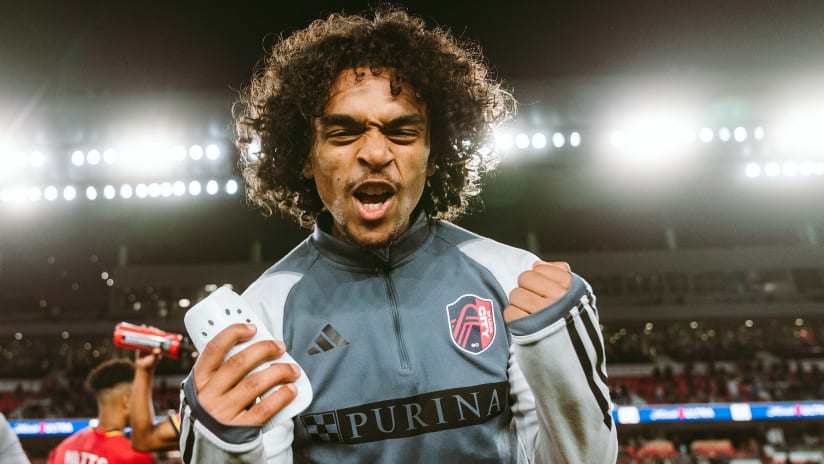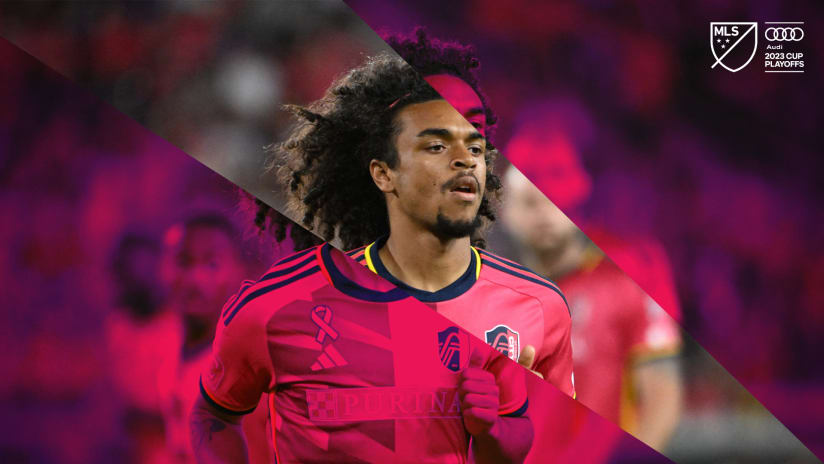You could argue that Aziel Jackson isn’t supposed to be playing soccer for a living.
That there’s something rebellious in the simple fact he didn’t exactly follow the family tradition of virtuoso musical excellence established by his grandfather, Ali Muhammad Jackson, who composed and played bass with the likes of Billie Holiday, John Coltrane and Thelonious Monk (often alongside his brother, Oliver ‘Bops Jr.’ Jackson), and continued by his father, Ali Jr., one of the top jazz drummers of his generation.
It’s not that Aziel, or AZ for short, isn’t musically inclined – he plays the piano and guitar, in addition to expressing himself through drawing and fashion and other outlets. It’s just that fate led him to make a ball his first and favorite canvas.
“There's a certain type of thing that musicians have when we're in like, the zone,” St. Louis CITY SC’s young attacker explained in a recent one-on-one conversation with MLSsoccer.com. “It's like something that is within you. When you're in it, it’s like there's nothing else around.
“And that's kind of how I felt when I scored my first MLS goal: It was like there was nothing else around, and it was the same feeling I have when I play music. So that's kind of how I intertwine the two, because it's always about the next note – the next key I play on the piano or the next string I play on the guitar. And that's how I relate it to soccer, because it's always about the next touch I have, or the next pass or the next shot.”
Launching pad
In an expansion season packed with pleasant surprises, Jackson, who turned 22 last week, has been perhaps St. Louis’ most unexpected development – a youngster both inventive and relentless, with playing time and production (1g/4a, 16 key passes in 1,120 MLS minutes, and two goals in US Open Cup play) beyond what his prior résumé would seem to have projected. The fact he was doing so in a direct, aggressively physical game model made it all the more remarkable.
Yet for the player himself, it was a breakthrough long sought and well overdue.
Way overdue.
STL are already the fifth club in Jackson’s relatively young career, and that’s not counting a 2021 loan spell at North Carolina FC or a brief training stint with the Seattle Sounders in 2020. After picking up the sport with remarkable speed and ease as a kid, he ‘played up’ in older age groups for most of his youth career, turned heads as a 13-year-old standout in the New York Red Bulls system and became the first-ever US player at Toulouse when he joined the French club’s academy at age 15.
More recently he shined for Minnesota United FC’s second team, garnering MLS NEXT Pro Best XI honors, yet found opportunities for promotion scarce, which made him receptive when St. Louis inquired about him last year.
Having fielded a side in MLS NEXT Pro a year before their full launch, CITY SC had already seen him up close. The they forked over to the Loons turned out to be a bargain.
“The first time I saw him in action … was when we played them in NEXT Pro against Minnesota over there at SLU [St. Louis University], where he gave us a hard time,” STL sporting director Lutz Pfannenstiel said last week. “We’d just had a game against Louisville in the [Open] Cup, we were dead tired, and he ripped us apart. So that was when I put him on top of our list when it comes to youngsters from NEXT Pro, which actually has a lot of potential.
“It was quite a lengthy negotiation, to be fair, to get him out from there, because somewhere we had the feeling they desperately want to keep him there. But also I knew that he wants playing time and didn't get the playing time in the first team; the opportunities were missing. So he wanted to have a new challenge. I thought his playing style fits very well to us; he's young, he's hungry. Sometimes, in a positive way, he’s very, very wild, which is great for us.”
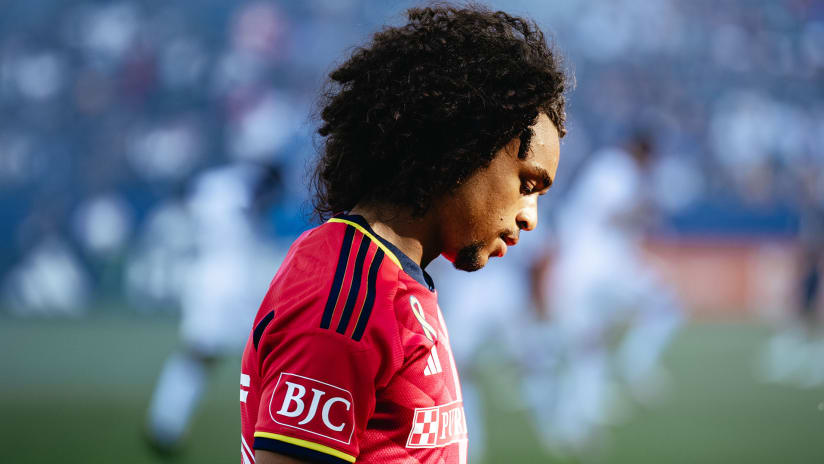
For his part, Aziel chafes when thinking back on the hurdles and sidetracks that kept him from becoming a first-team regular long before now, and feels he was unfairly ignored by the US youth national team system.
“[U.S. Soccer youth coach and scout] Cris da Silva was telling the federation about me, saying, we have a player who just went from Red Bulls to Toulouse, to Ligue 1, they were in the top five best leagues in the world, and I was playing well there,” said Jackson.
“It sucked because I didn't get the respect, or people watching me, and I had to just grind for myself. I feel like now being in MLS, people are seeing who AZ is, but I've been the same this whole time. I've been here. I've been here just waiting to be seen.”
The early days
Comparing his playing style to his family’s musical heritage is unavoidable, in no small part because they’ve been firmly intertwined since he was a toddler.
“Music is how I became myself. I think music was just around how I built my relationship with the ball,” said Jackson. “When my dad went to concerts – I had to go with him every single time, he couldn't leave me at home – I was like 7, 8, I would bring my ball all the time backstage. Just always, constantly playing with my ball backstage.”
With a grin, his father tells of Aziel falling asleep watching Ronaldinho highlights on his tablet as a child. He likes to say his younger son has “got some Brazilian in him somewhere,” a nod to his creativity and comfort on the ball. And that quickly leads back to music again.
“I started to love Sergio Mendes, who is a Brazilian artist, and I started to just play his music while I was playing with the ball,” recalled AZ.
“My dad never forced me and my brother to play music, that just came from within us. Like when I picked up the guitar, I just picked it up really fast. And I would just create songs out of nothing sometimes, and that's how I want to play football, too. I want to create, be a creator through my teammates.”
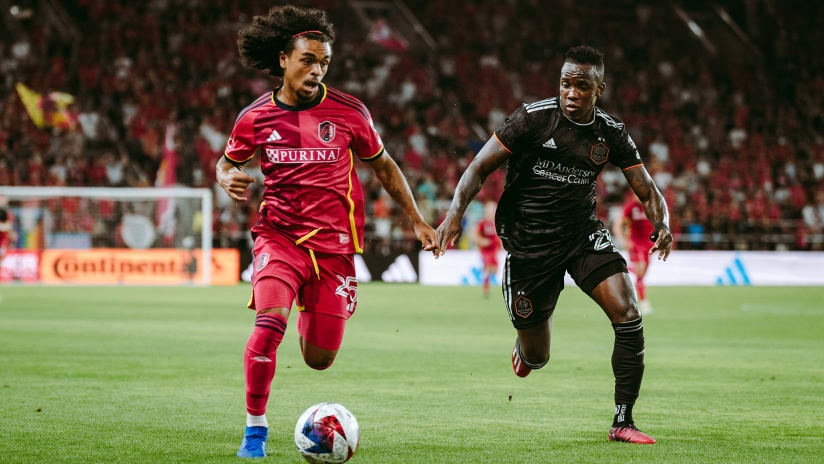
Like his father, a child prodigy on the drums, Aziel showed high aptitude from an extremely early age. At age 3, he wowed his family when he stepped onto a soccer pitch for the first time to fill out the numbers on his 8-year-old brother Ali III’s team.
“I ended up running around, tackling, dribbling the ball, scoring, and then I just went on with it from there,” he said. “As soon as I latch on to something, I just keep doing it, and I just keep going as far as I can go. And I use that – I mean, soccer of course is what I do as a profession – but with music or with my artistry, or my languages or my books I write.”
When AZ was 4, playing alongside 6-year-olds, a coach pulled his father aside after training one day.
“He said, ‘Look, you need to pay attention to him because he has a thing, he has a gift around the game,’” recalled Ali Jackson Jr. to MLSsoccer.com. “‘He understands space.’”
There were no other soccer players in the immediate family. So Dad decided it was time for a crash course.
“I went down the complete rabbit hole, took the red pill, and then I became hooked into the sport, of watching good football,” he said.
“Our country is still very much a newbie in the game based on other countries and the quality of players, the quality of play, the nuances of the game – there's so many elements to it. And that's kind of how I fell in love with the game. It's very much like, quote-unquote, ‘jazz music.’”
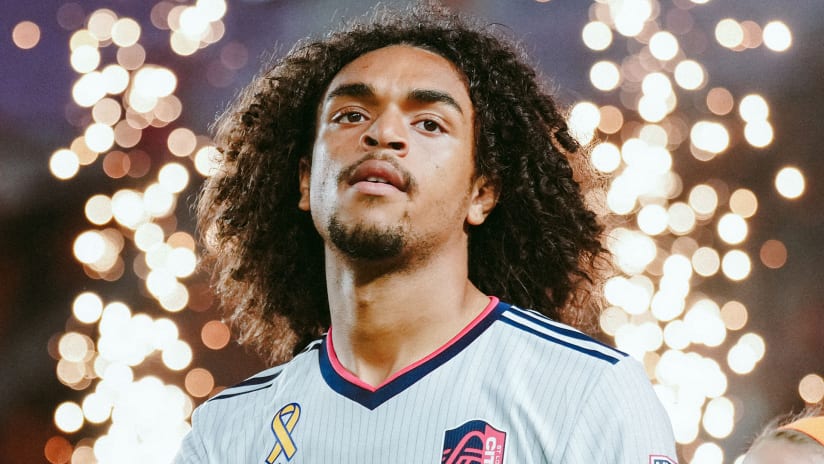
Ali was both proud and exacting, posting on YouTube a video of a tiny Aziel slaloming past defenders and setting up teammates for New Jersey youth club Ironbound SC. Perhaps because of his own experiences in music, Ali sought ways to keep his son learning and advancing, even when he caught some friction in response.
“Being a percussionist or drummer, being ambidextrous is important. And I said if you can use both feet equally well, then you don't have a problem,” he said. “He would always say, ‘Dad, come play with me.’ I was like, you can only use your left foot. So he would be OK at first and then it would be hard. This is like 4 or 5 years old. He would cry sometimes, then over time, he didn't even think about it. And that's the whole process: it's difficult at first and then you get to a place where you're not thinking. It’s just natural, organic.
“AZ is the kind of person, he's super focused. This guy would spend hours with the ball. And I think that's the most important thing, is just being passionate about what it is that you're doing, or having a love for it.”
That intrinsic motivation was key when his father’s career kept him on the road for long stretches.
“My parents divorced when I was like 6, 7. I lived with my dad and my brother lived with my mom. And I had to grow up really fast, because my dad was not around as much and he had to travel and everything,” said Jackson. “So in terms of my development as a soccer player, I took it into my own hands.
“Every single day after school,” he added, “I would just be shooting the ball against the garage. There were so many prints on that garage.”
Taking off
He shined for Met Oval, the historic youth club in Queens, then RBNY. Both father and son believed he was capable of doing something special in soccer. As adolescence arrived, their views on how best to get there began to diverge.
“He pushed me a lot, in good ways and bad ways,” said AZ. “Mostly not as a father figure. He was more so as a coach, manager type of person. He wouldn't be like a father kind of vibe. And that's something I missed. It was kind of just only about soccer, soccer, soccer. It was nothing about father-son.
“I feel like my dad did know I had talent, but he didn't know how to parent the talent.”
Ali was forged in the demanding world of jazz’s elite. The legendary Wynton Marsalis is a close friend – and Aziel’s godfather – but sent Ali home from a 1997 Jazz at Lincoln Center Orchestra session in Washington, D.C. when the drummer fell short of what was required during an intricate big-band piece alongside several legends of the genre.
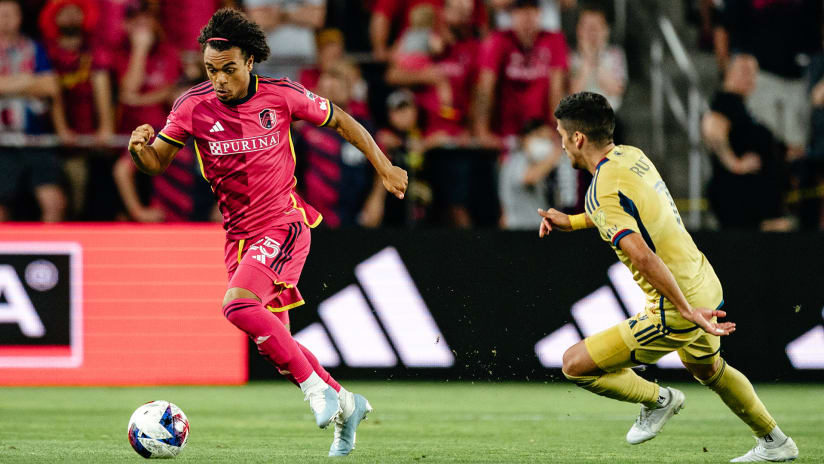
“I'm not one of those dads like, oh my kid’s the best. Nah, I'm a realist,” said Ali. “I’m in music. It’s like, you either played that right or you didn't play it right.
“We all want our kids to be successful, and we want them to be happy. And those, there's a real delicate balance,” he added. “Because if they're not successful, they probably might not be happy. Being happy, like success, it can be many things. But it's something that they're passionate about and they love to do and if they can make a living at doing it, that's just bonus. But success and happiness, they're crucial to the human spirit.”
Ali notes he lost his father, the wellspring of his own musical journey, when he was just a child.
“My father was a great musician. The unfortunate thing is he passed away when I was really young. So everything that I do is an extension of him, whether I like it or not,” said the elder Jackson. “I owe him everything. He planted the seeds, he taught me how to fish. So it's like a debt you can never repay.
“Somebody gives you something that you could never pay them back for, because it's time-sensitive. It's like an investment made at a certain time – you can't go back and make the investment. You either did it or you didn't.”
Crossing the pond
That mindset may have been a factor in Ali’s conviction that Aziel needed to continue his development overseas, in one of the sport’s ancestral hotbeds. Despite both team and individual success, he couldn’t tell whether RBNY truly rated Aziel as a future pro like they did with Tyler Adams, the steely defensive midfielder two age years ahead of him. So he went about arranging a trial at Toulouse FC, where academy director Rémy Loretwas impressed with the young Yank. Ali set up shop as an artist-in-residence and consultant nearby.
The details of AZ’s time in Occitania are both harrowing and inspiring. He spoke no French upon arrival, and the club had no language classes lined up, nor the other player care accommodations many clubs provide to ease a steep learning curve in the usually cutthroat environment of a top academy.
“I was the first ever American signed to the club, so it was new to them as well as to me. But it was harder on me because there was no one backing me up,” he said. “I had to learn on my own. I enrolled myself in an international French school only for adults, and they made an exception for me because I was playing soccer and I was with a bunch of adults.”
Incredibly, he became fluent in just a few months – and needed to be, because he was soon plunked down in the same French high-school curriculum as his academy mates, many of whom gave the kid from America a hard time. As did some of the coaches. (AZ also speaks Spanish, and has picked up a bit of Portuguese as well.)
“They were just being really hard, they were giving me no grace,” he recalled. “It was always a one-against-the-world type of vibe, because my family is so scattered. There was a point in time for a couple of years when my dad was in New York, my mom was in Seattle, and my brother was in Okinawa [serving in the Marine Corps], and I was like 14, 15. So definitely tough.
“I remember I was just crying one day in my room, because I didn't know what was going happen. I was just hoping for the best, praying for the best. I didn’t know what God had in store for me.”
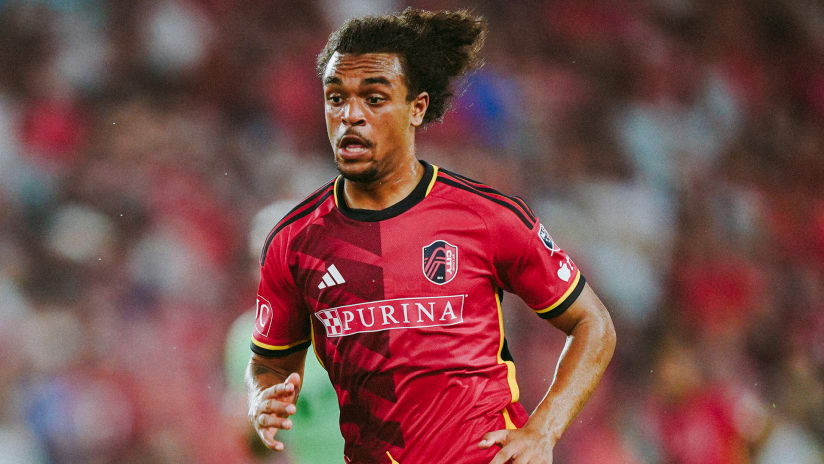
AZ bore down, threw himself into his craft, made a few friends, and leaned on his Christian faith. His godfather Wynton visited when he stopped through the region to play a jazz festival in nearby Marciac; so did other friends of the family. A YouTube video of him crushing a juggling challenge with more than 2,000 consecutive touches underlines his dedication.
Returning home
After two seasons in France, the latter spent at lower-division club Blagnac FC, he decided to return Stateside and join his mother in Seattle. He trained with the Sounders in 2020, but the Rave Green were hesitant about allocating the assets that would be required to acquire his MLS rights from the Red Bulls, so he played for local youth club Crossfire Premier.
His next destination was Minnesota United, where he didn’t play a single minute for the Loons in 2021 and spent a few months on loan at NCFC of USL League One. Even 10g/7a in 23 MLS NEXT Pro matches and a league-best 72 key passes last year reaped only a handful of Open Cup minutes and zero MLS action at a club that has labored to bring along young talent.
Under Bradley Carnell at CITY SC, “the comparison is night and day,” he says.
“Bradley and the coaching staff, they're all wise, great coaches because they know how to create a system where they can get the right players, right pieces to fit the style of play,” said Jackson. “That requires young players, but they also want to advance our careers as well. There's not a lot of coaches like that in MLS or any, if I can really say as I know, besides St. Louis.”
Carnell, himself a Red Bulls alum, likely took note of Jackson’s past in the RBNY system, the foundation for his combination of technique, tenacity and work rate. Spotting, collecting and elevating undervalued gems like him is central to STL’s model, particularly for cultivating the depth required to sustain high-tempo pressing and counterpressing through the marathon MLS season.
“He's one of the creative chaos makers, what we’re always talking about,” Pfannenstiel said. “Also the way I think he developed since he's here was really great. He didn't play a big role in the start, it took him some time – he was not always happy, which is normal. And I think that was a great thing, that he was not happy. He was not satisfied. He wanted it so much. Then once you do get the opportunity, you have to take it and I think that's what he did, with a big smile on his face.”
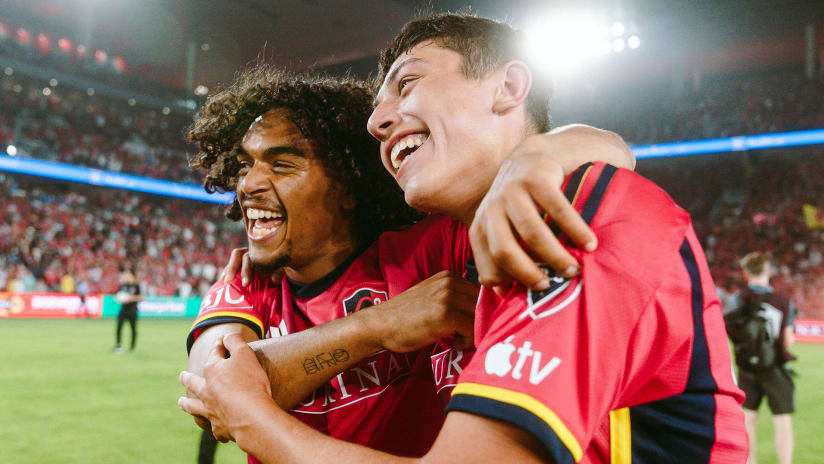
A new start
AZ is happy in The Lou. He and teammate/roommate Sam Adeniran, a former Sounder with a similar career track to his, live in the Bevo Mill neighborhood on the city’s South side, and he’s begun to explore STL’s rich music and art landscape. Yet readers will not be surprised that both he and his father hold big visions, vast ones, for his future.
“I always believed in AZ,” said Ali. “This is his dream, this is not my dream. I'm just trying to help you maximize where it is you want to go. So I would always say, our journey is over when you get to Barcelona.”
Whatever happens to CITY SC’s year-one Audi MLS Cup Playoffs hopes, he’s got a lot to look forward to. Jackson remains age-eligible for the US team that will compete at the Olympics in Paris next summer. He longs to play for his country someday. European clubs like Bayer Leverkusen, Hannover 96 and Villarreal are reportedly tracking him with an eye towards a future transfer.
A distance lingers, it seems – for now at least – between AZ and his father. Maybe it will always remain so, as is the case for so many parent-child relationships. Ali will be watching with pride regardless, hoping he did enough to help his child maximize those prodigious talents.
“He set the expectations,” said Ali. “He said, ‘I want to be a world-class footballer.’ I said, ‘OK, these are the things you got to do. If you're not doing this, that's just talk. So if you put the work in, then it's attainable.’"
Noted Aziel: "I also say that I'm resilient, and I persevere a lot as well because in my story there's just so many times where I had to like, push through it. ... If I fail at something, I'll keep doing it until I get it right."
